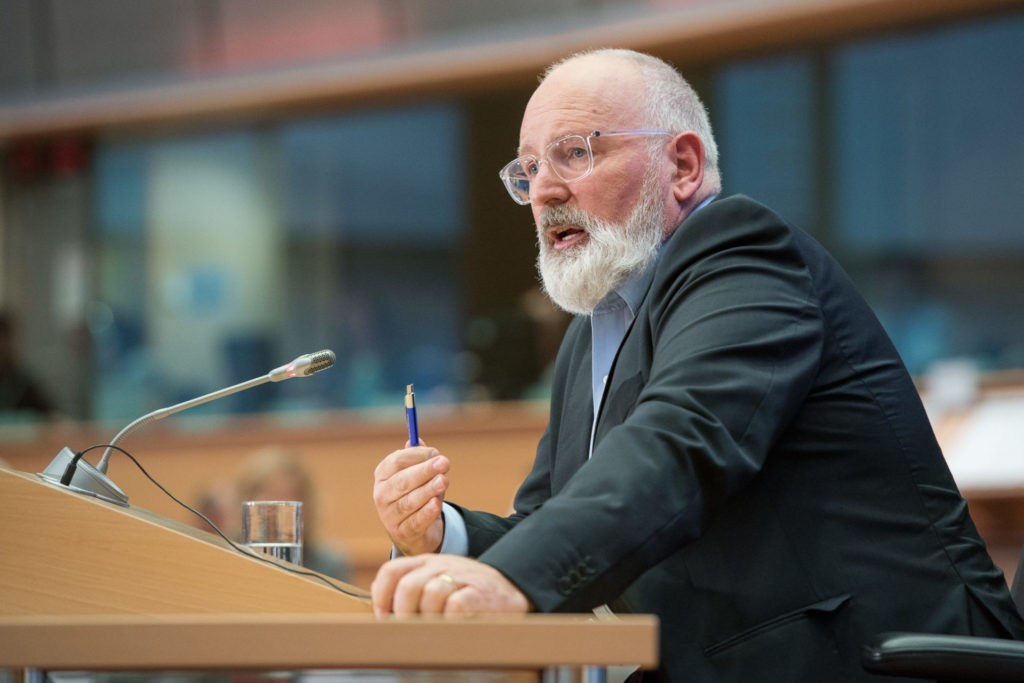European cities will need to be transformed to be significantly greener in order to reach the EU's 2050 climate goal, the Executive Vice President of the European Commission for the European Green Deal said during a Green Deal debate on Tuesday.
Frans Timmermans, who leads the European Commission on the topic of climate law and the EU's efforts to become more sustainable, urged that the increased involvement of European cities and their surrounding rural areas is essential in the response to the "unprecedented challenge" of climate change.
"This transformation is going to be very intrusive for many industries," Timmermans said.
Timmermans emphasised that much can be gained by creating greener cities.
In Timmermans' vision, greener cities would have green public transport, more walk paths and more bike lanes. In addition, surrounding forests would need to be upgraded, as they are currently "in horrible shape". Housing and other buildings would need to be strongly improved to use less energy in a "wave" of "renovation".
Future infrastructure would bring "electric mobility" to European citizens, who would be able to enjoy more charging stations. Citizens would also be able to purchase electric vehicles at a lower price. "We will also need to double our efforts in solar panels," Timmermans said.
"These efforts will reduce energy bills, create jobs, and create a sense of optimism for the citizens involved."
Related News
- Pandemic could hamper EU’s progress on reducing plastic waste
- Brexit: EU experts concerned over food safety, health and environment
- Climate-change risks exceed 2001 estimates
For heavy transport, like trucks carrying consumer goods, more innovations should be made in the field of hydrogen vehicles that drive on a zero-emission fuel made from methane or by electrically separating water molecules, which contain hydrogen.
In general, the Green Deal will require major adaptations to national economies and a redesign of Europe’s relationship with energy, which will need to be deep-cleaned in the coming decades.
For Belgium, the European Green Deal would mean that it will eventually need to stop making use of fossil fuels, including natural gas.
For an efficient transition in Belgium, the effect on the production potential will need to be minimised, the social dimension will need to be taken into account, and the cost would need to be controlled, Belgium National Bank (BNB) stated in February 2020. BNB added that the Green Deal is “very ambitious”.
On 8 October, the European Parliament voted in favour of making every single Member State climate neutral by 2050. In order to reach this goal, greenhouse gas emissions will need to be strongly reduced by 2030 and 2040.
Amée Zoutberg
The Brussels Times

